When you’re newly diagnosed with food allergies, you may feel overwhelmed, anxious. You’re unsure what to do first after you leave your allergist appointment, epinephrine prescription in hand. You’re unsure what shape your life will take when the dust settles and the ‘new’ has worn off the diagnosis.
What you do know with certainty is that life as you know it has just taken a sharp left turn; a turn that was not part of your plan.
Below, find a ‘quick start’ guide to resources** to help you reset and recalibrate your journey called life.
As you explore these resources, you will find that there are excellent advocacy groups for the food allergy community. You’ll also find that you are not alone and that there is a broad and kind food allergy community who will share their learnings, hacks, encouragement and support to help you gain your footing and build your confidence.
Figuring It Out—getting a correct diagnosis & understanding it
ACAAI
Resource suggestion: food allergy testing and diagnosis
ACAAI is the ‘American College of Allergy, Asthma & Immunology’, a professional medical organization of more than 6,000 allergists-immunologists and allied health professionals.
KFA
Resource suggestion: diagnosing a food allergy
KFA is ‘Kids with Food Allergies’, a division of the Asthma and Allergy Foundation of America (AAFA). KFA serves as a lifeline for families raising children with food allergies. AAFA, a non-profit founded in 1953, is dedicated to saving lives and reducing the burden of disease for people with asthma and allergies through support, advocacy, education and research. AAFA offers resources for health care providers and policymakers, as well.
AAAAI
Resource suggestion: oral food challenges—what, why, how
AAAAI is the American Academy of Allergy, Asthma & Immunology, a membership organization of more than 7,000 allergists / immunologists (in the US, Canada and 72 other countries) with a special interest in the research and treatment of allergic and immunologic diseases. AAAAI is also a trusted resource for patients with allergic disease and immune deficiency disorders.
Settling into Life with Food Allergies—climbing the learning curve post-diagnosis
FAACT
Resource suggestions: for the newly diagnosed & food allergy basics
FAACT is the Food Allergy & Anaphylaxis Connection Team, a non-profit organization that educates, advocates (government & civil rights), raises awareness and connects food allergy parents. FAACT organizes highly accessible events & experiences like teen retreats, support group leader training sessions, camps for kids and support groups.
FARE
Resource suggestions: for the newly diagnosed & for early childhood
FARE is the Food Allergy Research & Education organization, a non-profit that succeeded a predecessor called FAAN. FARE empowers individuals with food allergies to lead safe, productive lives through education, building awareness and advocacy initiatives. For example, FARE helped pass the 2021 FASTER Act which added Sesame as Top Allergen #9 in the US. FARE is also the largest private funder of food allergy research and their Patient Registry is accelerating food allergy research by supporting data sharing & collaboration across research institutions.
KFA
Resource suggestion: for the newly diagnosed & for affording epinephrine
Food Allergy Canada
Resource suggestions: for your new reality & the emotional impact for children
Food Allergy Canada is dedicated to helping Canadians with food allergies live with confidence. Food Allergy Canada is a source of critical food allergy information, educational programming, support services and advocacy for the more than 3 million Canadians (1 in 2 households) who live with this chronic condition.
CFAAR
Resource suggestions: Workbook & Passport for consolidating and communicating your food allergy information
CFAAR is the Center for Food Allergy and Asthma Research. CFAAR conducts research to improve the health of people living with allergic disease. From their research, CFAAR develops, evaluates and distributes asthma and allergy interventions, and informs local, state, national and international health policymaking. (CFAAR is part of Northwestern University’s Feinberg School of Medicine & Ann & Robert H. Lurie Children’s Hospital of Chicago)
Allergic Living
Resource suggestion: food allergy anxiety guide
Allergic Living is an e-magazine that is a trusted source of news, information and insights for people managing allergies and asthma. Allergic Living is known for its science-based & fact-checked reporting on allergic disease, for featuring advice from respected medical experts, and for publishing relevant lifestyle content.
Finding Support from Others Who ‘Get It’—for when you’re ready
Always check with your own medical provider to verify information you gather from the internet when making healthcare-related decisions!
Support group options to consider
- AAFA local support groups: look for a support group near you using this state-by-state directory.
- FARE: find a FARE support group.
- FRIENDS HELPING FRIENDS is a FAACT-recognized support group: Explore here.
- MOCHA (Mothers of Children Having Food Allergies) is a Chicago-based support group with a nationwide following: Learn more here.
- NNMG Food Allergic Families Forum is another FAACT-recognized support group: Explore here.
- Regionalized NNMG Facebook groups: There are over 100 groups — at state/province level, county/region level, and city level — coast to coast in the US and Canada. Find a group near you.
- Parents of Children with Multiple Food Allergies: Explore here.
Courses can help, too
- AAFA offers a free course on managing your child’s food allergies.
- A start-up, ‘Feed Your Can’, recently launched an A-Z course on food allergies for people who are new to allergic living. (There is a small charge to access this course.)
Getting Started with Allergen-free Cooking—venturing forth in your brave new world
Label reading—this is an all important skill to hone
- An article on ‘How To Read Food Labels for Allergens’ by Allergy Force is a good place to start sharpening this critical skill set.
- CFAAR’s Food Allergy Workbook also includes an excellent guide on how to read food labels.
Knowing where allergens can hide—protects you from accidental exposures
- Allergic Living’s article on hidden allergens is a great place to start.
- CFAAR’s Food Allergy Workbook also includes lists of hidden allergens.
Substituting for allergens in recipes—this is another important skill to master
- KFA’s recipe substitutions can make kitchen creativity easier.
- FARE suggestions for simple substitutions by top allergen can help, too.
- Food Allergy Canada also offers a substitutions guide.
Finding kitchen inspiration—meet a few allergy-friendly recipe innovators
Food allergic living gets easier over time—promise! Give yourself space & grace to learn.
You’ve got this!
** Notes
Allergy families have more resources at their fingertips for navigating everyday life than ever before. The world has finally caught up with the food allergy epidemic.
Allergy Force is not an affiliate of any of the organizations (non-profit entities, for profit companies, websites, publications) referenced in this article. The organizations offering these resources are committed to making life with food allergies safer and easier for families affected by food allergies.
We’re proud to help you find resources that help you master allergic living quickly and confidently.

Allergy Force is committed to helping people with food allergies live freely — with less fear, less anxiety, more confidence — through technology and education. The Allergy Force food allergy app is peace of mind in your pocket.. |
|
… |
|
Image Credit: Ian Battaglia on Unsplash


